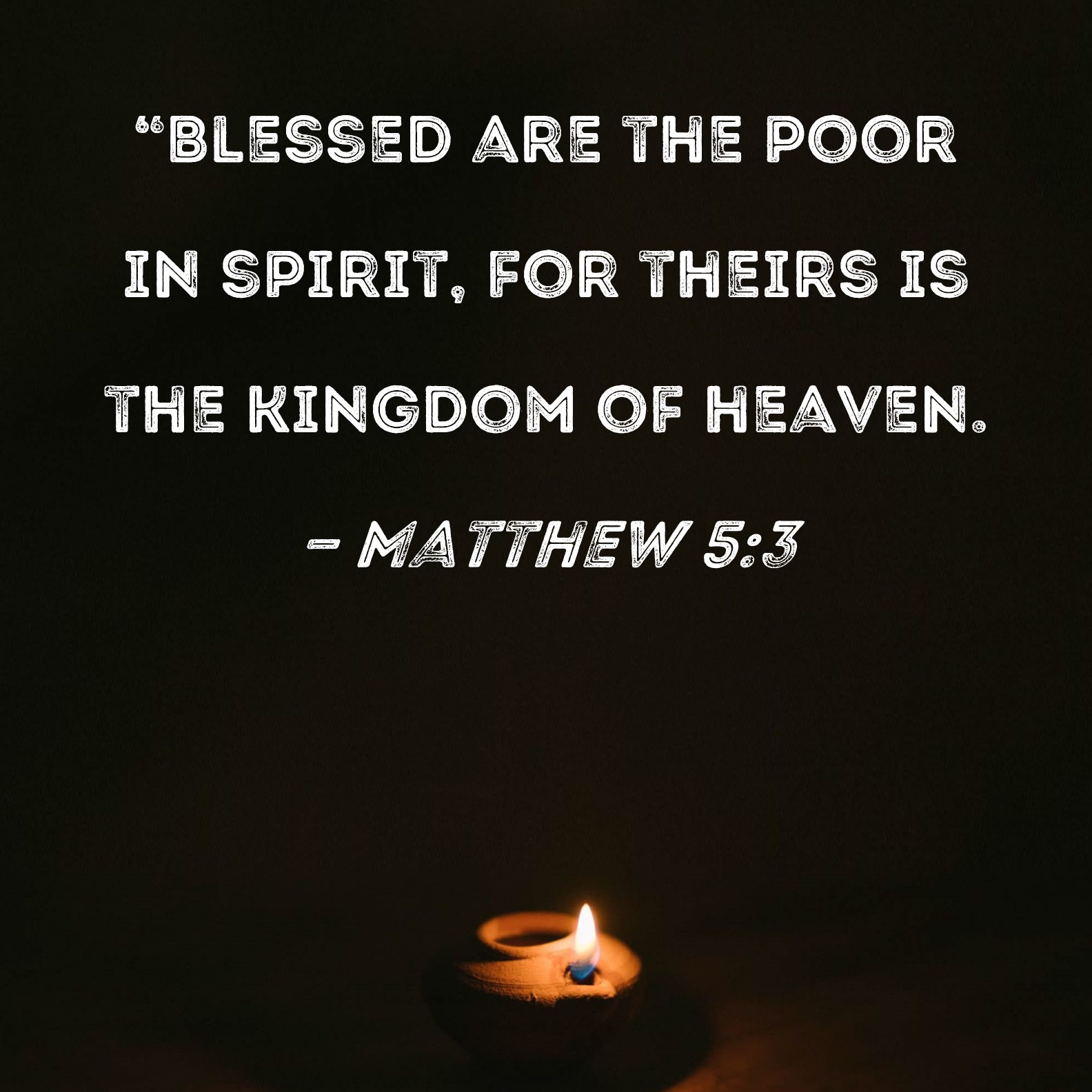Living Like Yeshua, Part 1 (Matthew 5:3)

Blessed are the poor in spirit, for theirs is the kingdom of heaven.
Matthew 5:3, BSB
Divinely favored those who are impoverished to the breath, that belonging to them is the dominion of the sky realm
Literal word-by-word Greek to English paraphrase
These are the first recorded word's of Jesus' Sermon on the Mount. But what odd words to begin a sermon with!
But let's step a couple verses further back and introduce this series, shall we? See, when Yeshua saw the crowds coming, he climbed partway up a mountain. And when He sat down, His disciples came to him and He taught them.
This sermon was not evangelical in nature. There was no "believe in me, repent and be baptized" and while there is no doubt the crowd followed Him, the "He taught them" is grammatically attached to His disciples.
This sermon was not "this is how you become my disciple". It was a sermon about "you have already become my disciple, you've already repented, already committed to learning my way of life, so here is how I live"
And so, one by one, I'm going to dissect each element of the sermon and explore the root grammar.
With that being said, Luke has a very similar sermon encounter as Matthew. But he does not say "poor in spirit". He simply says "blessed are the poor". So why does Matthew point out the "in spirit" to his primarily Jewish audience, while Luke, to his primarily Greek audience, does not?
And what does "poor in spirit" even mean?
Well, as my literal word-by-word Greek analysis determined, the word can be locative, like "I am in the house" or dative, denoting a recipient or beneficiary of a verb "he gave to me".
Within scripture, the most frequent usage is dative. Within this specific verse, this would seem to make a little more sense than locative. Poor to the spirit.
So what is the spirit? The Greek 'pneuma' can be translated as literal breath, as the wind, as a human soul, or as a spiritual force, like a demon or The Holy Spirit.
A supernatural force seems unlikely. The concept of the Holy Spirit had not yet been introduced, and pneuma was not written in a titular/proper name form.
Wind makes no sense in the context.
Breath would seem the most common usage of pneuma in Jewish antiquity, according to Josephus' usage, but soul would seem the most theologically sound, even though soul was not the most common usage of the word.
The answer? The Old Testament actually has a precedent to the whole "in spirit" thing. Psalm 34:18 says, "The LORD is near to the brokenhearted; He saves the contrite spirit."
And in Hebrew, spirit is 'ruah', which is all-inclusive term. Ruah, except when referring to wind or the spirit of the Lord', refers to a collective breath/soul/life force essence.
This is likely why Matthew notes 'in spirit" but Luke does not. A Jewish audience would have the core understanding of their 'ruah' to connect with 'pneuma', but Greeks would just read it as breath and it would not make much sense.
Bottom line, Jesus isn't saying "have the soul of a beggar". He is saying "Blessed are they who recognize their destitute and broken essence".
I am nothing. I have nothing. My being is broken and my existence is futile. I don't need a physical messiah, I need a spiritual messiah."
Matthew 5:3
"Divinely favored are those who recognize their spiritual depravity and recognize their need for a rescuer. For they will rule in the coming kingdom."


❤️
ReplyDelete